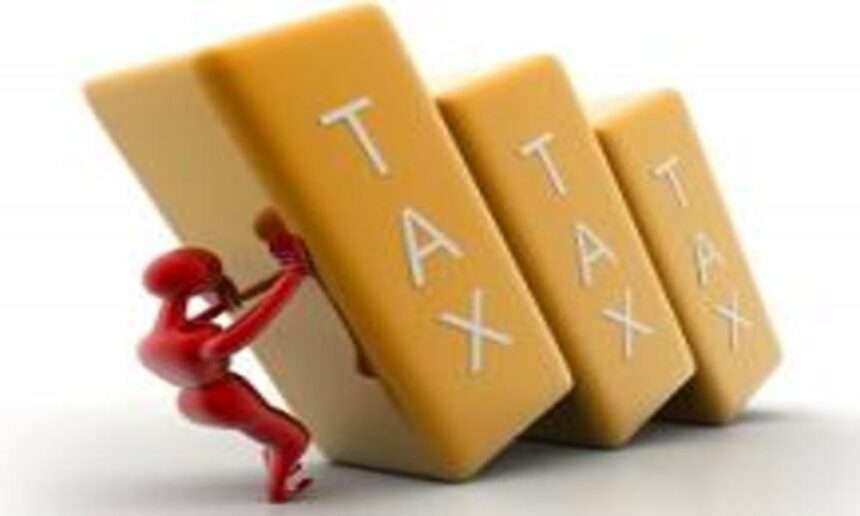Why must there be taxes? It’s because it was decided that citizens were all to contribute to financing the government, whose primary role is to organize security to protect the three basic rights of people: life, liberty, and property. Through social progress, the government’s duties were expanded to provide education and protect health. Of the one million people that make up Mongolia’s labor force, 18 percent work in government, law enforcement, education, or healthcare.
The funds to provide wages, facilities, and transportation for these 180,000 citizens are accumulated by taxing the portion of the population creating material wealth. The number of taxpayers is about 400,000, after subtracting the 100,000 who are abroad, the 100,000 unemployed, and the 220,000 who run businesses off the radar. This means that one taxpayer is paying the costs of government services on behalf of 7.5 people.
The taxes in Mongolia are divided into income, capital, and sales taxes. Because our country is almost solely dependent on the mining industry, the royalties from public goods (mineral reserves) are no less than the income tax collected from individuals and businesses. A tax ratio like this, especially in a developing country like ours, where the citizens cannot oversee public governance in its entirety, leads to a prevalence of corruption and bribery.
The mineral markets have their own development periods. When prices and sales fall due to foreign markets, tax revenues fall along with them and the government usually ends up borrowing to make up for its bloated spending. If the government cannot restrain its spending and increase the revenues from sectors outside of mining, the chances of that country being credited to borrow again decrease. Consequently, there is no choice but to raise the other types of taxes.
TAX DEPRAVITY
Currently, the Mongolian government is looking for all the ways it can increase tax revenue. Mongolia is a country with a heavy tax burden. Every company pays 10 percent of their income in VAT, 10 percent of their payroll goes to income tax, another 20 percent to Social Security and health insurance, and finally, 10 percent of their net revenue. This comes out to a total tax burden of 47 percent of a company’s income.
This tax rate has become too heavy a burden on the nation’s roughly 90,000 enterprises and most can no longer afford to pay. Due to this, the Mongolian Chamber of Commerce and the Business Council have urged authorities to cut taxes in half. Even though half the companies are bankrupt, they are not allowed to close down. The local tax authorities want to increase their ranks so that they can work to collect taxes from all the companies.
In order to provide bonuses for the tax authority workers, who work long hours on little pay, the Head of the General Taxation Authority released the procedures for providing bonuses on the implementation of performance agreements, and these procedures were updated on June 27, 2013. These procedures are based on a Ministry of Finance resolution to provide incentives for decreased spending and increased fiscal income, which was approved in 2007, and later updated on November 15, 2012.
Thus, this “race” to increase fiscal income by exceeding the planned budget has continued for the duration of several governments, has brought private businesses to their knees, and provided the foundation for bribery. In actuality, working at the tax department, in customs, the courts, or any other similar oversight department, still provides people with the opportunity to find income that can be many times greater than a civil service worker’s actual wages. Due to this, politicians have been using such positions as “currency” to pay off their election debts.
The Independent Authority against Corruption (IAAC) has reported that in the tax divisions of the capital districts, 60 percent of the tax revenues that were collected in excess of the budget was being used for bonuses.
For example, in 2013, the Sukhbaatar District tax authority was able to collect an excess of 4.2 billion MNT. It was granted 800 million MNT in bonuses, of which over 40 percent (360 million MNT) was given to the General Taxation Authority, 40 million MNT to the Head of the Tax Division, 40 million MNT to the Head of the Finance and Treasury Division, 54 million MNT to the Head of the Tax Collection Department, and 2.2 million was given to each officer. The Bayangol District taxation department was awarded 574 million MNT, and 220 million MNT went to the General Taxation Authority, 20 million MNT to the division head, 12 million MNT each to five senior officers, and 5 million MNT to one senior officer. In Bayanzurkh district, the tax authorities were awarded a bonus of 1 billion 174 million MNT, of which 273 million MNT went to the division head and 528.7 million MNT was divided among the 32 officers. Songinokhairkhan District received 501 million MNT, of which 75 million MNT went to the division head. Khan-Uul District and Chingeltei District each received 416 and 250 million MNT respectively to share among their workers. What kind of plan is this?
The core of the problem is not that the bonuses are huge, or that they go against article 38 of the Tax Law, which states: “the monthly bonuses awarding an officer will not exceed his/her monthly salary.” The problem is that the Ministry of Finance feels that these bonuses do not go against any of their resolutions or procedures.
This all proves that the tax officers are using the uncertainty of laws and regulations to plunder the assets of others, as well as forcing some people to pay bribes. It is indication of how foolish it would be for anyone to talk of developing the private sector or re-investing in business under such conditions.
Taxes should be low, and everyone should pay them without being forced. The more value that people get to receive from their labor, the more value they will create. If they pay more than half their income in taxes, the motivation to work and use resources efficiently decreases. Let us Mongolians unite for fair taxes and intelligent taxes.
2014.11.05












